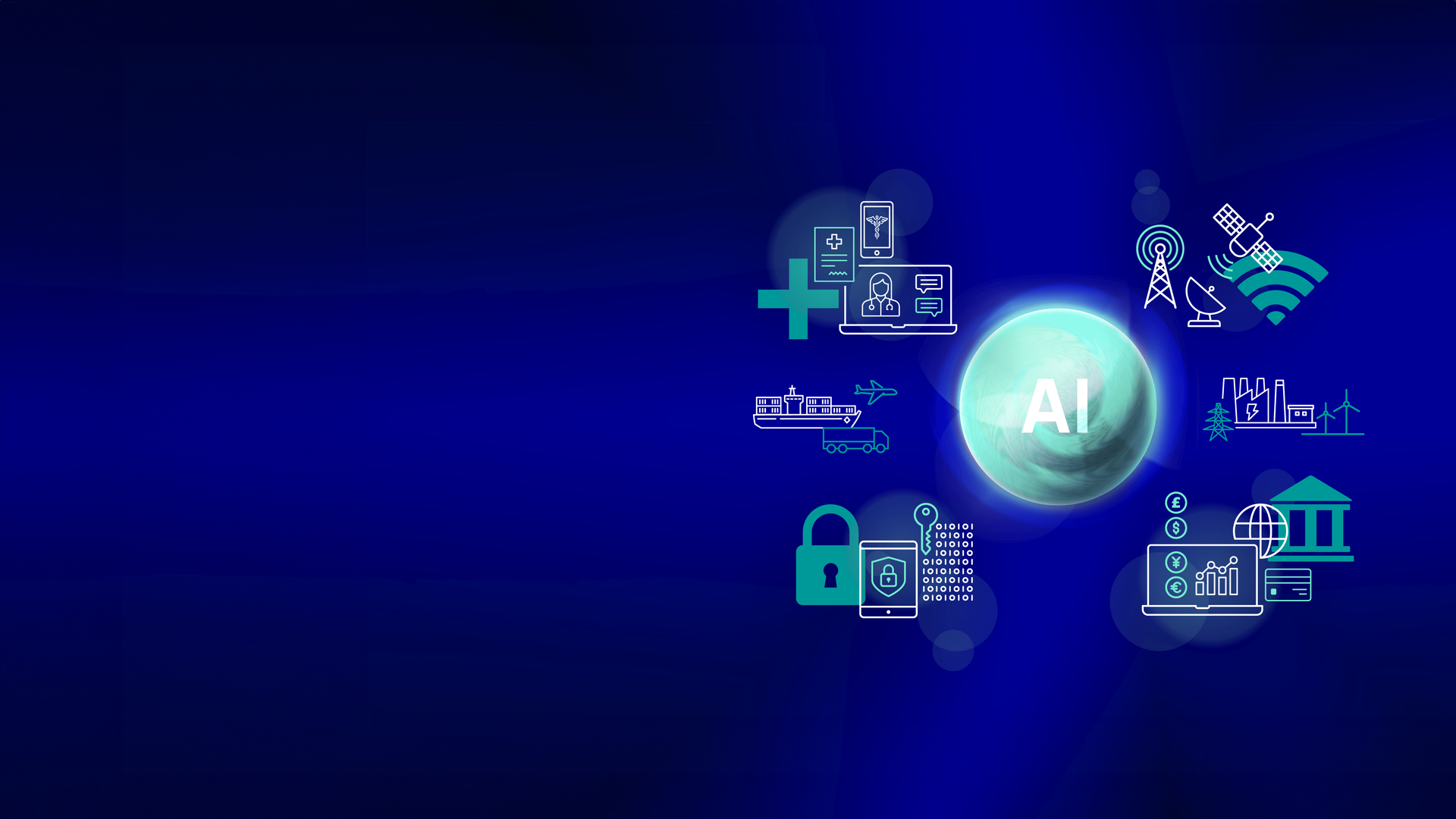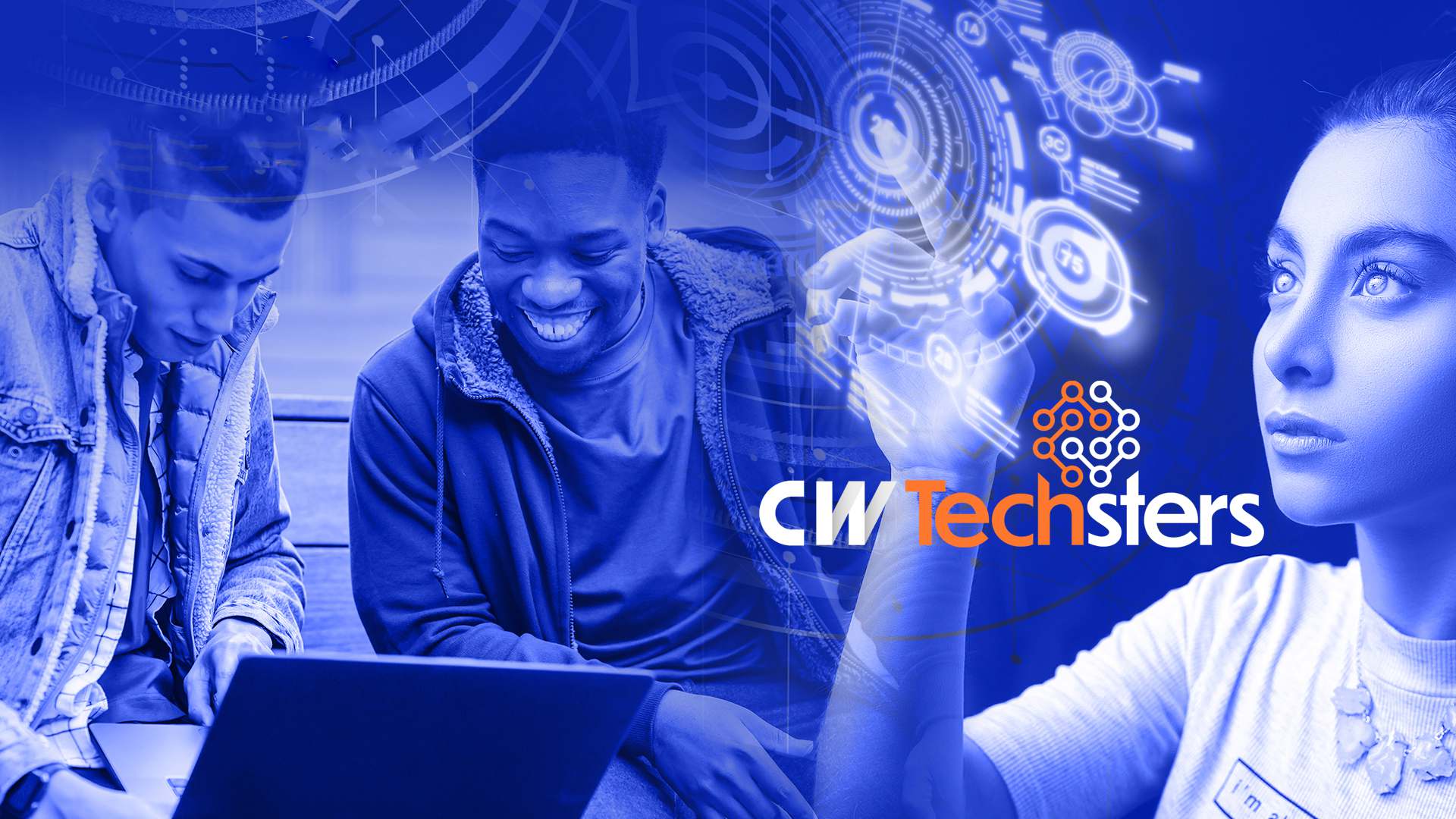Ben Azvine
- Global Head of Security Research & Innovation, BT
Ben is responsible for setting direction and strategy for Security research, identify innovation opportunities and lead a strong international team of researcher to develop new capabilities in collaboration with industrial and academic partners. Ben has 30 years’ experience in both academia and industry. His previous roles included leading the IT research centre and head of business intelligence & customer analytics research at BT Group Chief Technology Office. He holds a BSc in Mechanical Engineering, an MSc in Control Engineering, a PhD in Intelligent Control Systems from Manchester University and an MBA from Imperial College, London. Having held research fellowship and lectureship posts in several universities, he joined BT in 1995 to lead a research programme to develop and exploit novel Artificial Intelligence technology to support next generation IT systems. Since then he has held senior, principal, chief research scientist posts at BT’s global R&D headquarters in Adastral Park, Ipswich where he is currently based. He has edited two books and published more than 100 scientific articles on novel application of intelligent systems. He is an inventor of 50 patent applications, has won 4 BCS and an IET gold medals for IT innovation, holds visiting professorship positions at the Universities of Bristol, Cranfield, Suffolk and Bournemouth. Ben is a current fellow of Institute of Telecom Engineers (FIET) and has acted as the chairman of the European network of excellence for Uncertainty management techniques from 1998 to 2001. His current research interests include the application Artificial Intelligence and Machine Learning to Cyber security, protection of critical national infrastructure, data analysis and information & knowledge management. His current projects include Visual Analytics for Cyber defence, cloud & Internet security, machine learning and anomaly detection in network data and future identity and access management.
Richard Baker
- CEO, GeoSpock
Richard serves a Chief Executive Officer of Geospock, as well as serving as Non-Executive Director for Falcon Media House, a London Stock Exchange listed global Internet Media Group. He is the Chairman of TAB U.K. Ltd, a Data Science company based in Cambridge. Formerly, Richard was the joint founder and CEO of Cleartrade Exchange (CLTX), incorporated in Singapore, an electronic execution exchange for cash-settled, cleared derivatives and futures contracts. CLTX is regulated by the Monetary Authority of Singapore (MAS) as a Recognised Market Operator (RMO) and as a Foreign Board of Trade (FBOT) in the USA by the CFTC. CLTX provides a specialised order matching engine giving access to an anonymous central limit order book and block traded futures across multiple asset classes and contracts. CLTX was subject to a 100% majority acquisition by the European Energy Exchange, a Deutsche Bourse company in late 2016.
Richard has held several senior executive positions in technology, media and telecommunications. He has served as a non-executive board member in the internet technology solution sector and has directed and co-founded a digital media consulting services firm.
Richard has a passion for people, innovation, driving high standards and achieving high results. Richard holds qualifications in technology and communications and is a frequent speaker at conferences and roundtables.
Iris Barcia
- Pr. Mng. MPN Architecture, Vodafone
Iris Barcia is a multidisciplinary professional with entrepreneurial experience in the telecommunication industry. She is an innovator and forward-looking technologist that has worked directly with international executive teams and engineers at Tier 1 network operators, network infrastructure vendors, neutral-host vendors, government organizations, and services companies. She has been involved in the proposal and assessment of novel HetNet strategies for nation-wide 4G, 5G, IoT and public-safety networks, with a focus on future capacity provision and multi-technology evolution. More recently she’s focusing on Open RAN and MPNs. Prior to Vodafone, Iris has been the co-owner and COO of Keima, and has worked on RAN design, optimization and deployment projects at Telefonica and European rural broadband wireless initiatives. She has a BSc and MSc in Telecommunication Engineering from the University of Vigo (Spain) and an MBA from Cardiff Metropolitan University (UK).
Dean Bubley
- Director, Mobile Technology & Futurism Analyst / Consultant, Disruptive Analysis
Dean Bubley (@disruptivedean) is the founder of Disruptive Analysis, an independent technology industry analyst and consulting firm based in London. An outspoken analyst & futurist with over 25 years’ experience, he specialises in wireless / telecoms fields, with an eye on the broader technological, governmental and societal contexts. He is one of the leading market observers and forecasters covering 5G/6G, Wi-Fi, FTTX, edge/cloud compute, enterprise private networks, IoT, and policy issues including spectrum, competition and broadband wholesale. He is known as a contrarian and visionary, often with challenging opinions that go against industry consensus. Speaking at over 30 conferences and other events per year, and quoted by publications such as The Economist, FT & Wall Street Journal, he is an authority and provocateur. He regularly appears in technology industry videos, podcasts and blogs. Mr Bubley was formerly an equity analyst, covering communications stocks, with the UK arm of investment bank Robert W. Baird. Prior to that, he spent eight years at UK research firm Datamonitor, where he co-founded the company's Technology business, managed the Internet & Networking area and custom consulting operations, with roles of Chief Analyst & Director of Consulting. He holds a BA in Physics from Keble College, Oxford University.
Ray Forbes
Educated at Loughborough University of Technology between 1977 and 1984, he joined Plessey Telecommunications where he worked on Software Engineering and Analysis. Since 1990 he has worked on network development in the area of Intelligent Networks and the standardisation thereof. He has chaired the NGN Protocols in ETSI including the IMS adaptation to fixed networks and the Common IMS programme. He was elected as ETSI TC M2M Protocols WG Chairman. Also, he has been actively involved in the ITU-T Smart Focus Group.
He was appointed as chairman of the M2M Protocols activity in oneM2M the global Standards Partnership Project. Also, he was appointed as Leader of the M2M Service Enablement & Utilities Standardization in LM Ericsson. Currently, he is working for Huawei Technologies to lead and chair the ETSI ISG ENI (Experiential Networked intelligence)
Peter is responsible for understanding the cyber security risk to the UK’s telecom networks and works with major operators to improve security practice. He has helped define the security of 3GPP’s Mission Critical security standard and was a member of the UK’s FCCG group looking at 5G.
Mansoor Hanif
- CTO, Ofcom, UK5G Advisory Board Member, UK5G
Mansoor has 25 years experience of planning, building, optimising and operating mobile networks around the world. In 2011 Mansoor joined EE and was accountable for the technical launch of 4G as well as the Integration of the 2G/3G Orange and T-Mobile networks. Mansoor was Director of RAN and a board member of MBNL (the joint venture of EE with H3G) until 2016. At BT Mansoor was Director of the Converged Networks Research Lab from 2016 to 2018, and led collaboration with UK Universities, innovators, and government bodies. Mansoor was closely involved in the foundation of several cross-industry initiatives to accelerate innovation with disruptive technologies: in the UK, he co-founded the Scottish Innovation Partnership, and internationally participated in the Telecom Infra Project (TIP). From September 2018 Mansoor is the CTO of Ofcom, the UK telecoms and media regulator. As CTO he is head of the technology profession across the organisation, ensuring that the technology aspects of all Ofcom’s policy work are informed and robust, and is a member of the Policy and Management Board (the decision-making body at executive level). He also leads Ofcom’s activities in network security & resilience as well as engagement with CTOs at our stakeholders, industry bodies and with Government. Outside of Ofcom, Mansoor is also a member of the Advisory Boards of the UK5G Innovation Network, the Satellite Applications Catapult and UCL Electrical and Electronic Engineering Dept.
As head of telecoms and mobile at Cambridge Consultants, Derek leads the company’s collaboration within the sector. Central to Derek’s role at Cambridge Consultants is helping create breakthrough innovation that transforms the delivery of high-performance communication for their partners; from mobile carriers and ISPs, to vendors and component manufacturers. With over 20 years’ experience in mobile technology, Derek has held a range of multinational senior management roles and has a wealth of expertise across all generations of mobile and broadband technology, including LTE-A and 5G. Derek holds a PhD in telecommunications from the University of Bristol.
Carsten Maple
- Director for Cyber Security Research, University of Warwick
Professor Carsten Maple is Director of Research in Cyber Security and Professor of Cyber Systems Engineering in the Cyber Security Centre at the University of Warwick, where he leads the GCHQ-EPSRC Academic Centre of Excellence in Cyber Security Research. He is the Privacy and Trust stream lead and lead the project constellation in Transport & Mobility in PETRAS, the UK Research Hub for Cyber Security of the Internet of Things. Professor Maple has published over 200 peer-reviewed papers has provided evidence and advice to governments and organisations across the world, including being a high-level scientific advisor for cyber security to the European Commission. He is a member of various boards and expert groups.
Arthur Meadows
- Chief Commercialisation Officer, Fetch.AI
Arthur had a identity start-up in early 2000s and has remained fascinated by the sector ever since. He has recently left Fetch.ai, a Cambridge-based, AI + Machine Learning + blockchain company, that has raised +$20m in the last 18 months. Fetch.ai is building decentralised exchange platform in which activity history and trust enable autonomous transactions to occur between AI agents that represent individuals and their assets.
As a start-up enthusiast, Arthur has worked in a variety of positions around product management and marketing in the UK, Europe & in the US, in a range of different sectors. He started the Cambridge Product Management Network, a professional network for those that cross the (sometimes gaping) chasm between tech and commercials 10 years ago. He has an MBA from Judge Business School, University of Cambridge.
Chris Murphy
- Regional CTO, EMEA, VIAVI Solutions
Chris has nearly 20 years of commercial experience in telecommunications covering network performance measurement, optimization and SON, particularly in cellular RAN including LTE, UMTS, CDMA and 5G. His focus has been on the modelling, simulation and optimization of next generation technologies to build a revenue stream early in the life cycle of each new generation of telecommunication systems. He has contributed to various industry and standardisation bodies including 3GPP, NGMN, ATIS and the WiMAX Forum. Chris joined VIAVI through their acquisition of Arieso. Prior to that he worked for Motorola and Nokia developing new technical capabilities for the service portfolio. Chris holds a degree in Mathematics and Computing and a Ph.D. in the calibration of oceanic remote sensing satellites for improved models of climate change. He has authored various journal articles, conference papers and book chapters, most recently in "Understanding 5G: A Practical Guide to Deploying and Operating 5G Networks." Chris has filed 18 patent applications.
Tero Rissa
- Chief Architect, Machine Learning, Independent
Tero has over 20 years of industrial experience of scaling new technologies from research and concept engineering into commercial products. He started working with artificial neural networks in 2009, and has since held senior positions in both engineering and management. Most recently before joining Nokia Networks, he was a director of R&D at Microsoft and the lead architect of OZO in Nokia Technologies.
Tero holds MSc in CS/EE, Digital and Computer Systems from TUT Finland, and PhD in Computing from Imperial College London UK. He is also an emeritus member of the Nokia CEO Technology Council and Bell Labs Distinguished Member of Technical Staff.
Key topics:
Machine Learning and Artificial Intelligence
Theory and practice
Productization
Software frameworks
Hardware architectures for training and inference (CPU, GPU, ASIC, TPU, FPGA, etc)
Academic & research collaboration; most important future research directions from industrial point of view
David Salam
- Director of Mobile Networks, BT, Director of Mobile Networks, EE
Dave Salam is Director of Mobile Networks at BT, with overall responsibility to Design and Build the leading Mobile Network in the UK. Dave has a 25-year history is Mobile Technologies working across Network Strategy, Architecture, Design and Operations both in UK and Internationally. Recently, Dave has also led teams in Big Data technologies with a specific focus on developing real-time Customer Experience Insight and Operational simplicity.
Toby Simpson
- Co-founder and CTO, Fetch.AI
Toby is a pioneer in AI, autonomous agents and shared virtual world technology. He produced the cult hit Creatures series and was one of the initial team at DeepMind looking at nature’s contribution to Artificial General Intelligence. It was the investigation into P2P distributed ledger technology and blockchain which led to the realisation that the Fetch’s vision is within reach.
Stephen has spent much of his career working with wireless technologies. He started out using radio telescopes for astronomical research, before gaining his first commercial experience with Ionica, the Cambridge company that built the world’s first fixed wireless network.
He then moved to Ofcom, the UK regulator for digital communications. He was an executive member of Ofcom’s Board, served as Ofcom’s Chief Technology Officer, and as Acting Chief Executive. He led the teams responsible for setting strategy for digital communications in the UK, and for representing the UK internationally.
Stephen now holds a portfolio of non-executive and advisory roles in the technology sector. A common theme across his portfolio is an interest in how innovators, entrepreneurs, and government can work together to generate economic growth and social value.
Yue Wang
- Head of Advanced Network Research, Samsung Research UK, Chair of UKTIN AI EWG’, UKTIN
Yue Wang is the Head of 6G Research at Samsung Research UK. She leads a team of talented researchers working on cutting edge 5G and 6G network technologies such as system architecture, AI-native networks and O-RAN.
Yue is widely recognised for her extensive technical expertise, strategic and thought leadership in 5G, 6G, and AI within the telecommunication industry. She is the Chair of the UKTIN AI Expert Working Group, where she has the honour to lead a group of highly respected experts analysing telco AI’s forward-looking opportunities and challenges across technology, business, economy, and society. She has also led large scale (19 partners, 8M EURO) H2020 project, is an inventor of numerous patents, has been Secretary and Rappetour of ETSI ENI, delegate of O-RAN WG3, and a frequent speaker in conferences, having recently presented in events such as MWC and TMF DTW.
Prior to joining Samsung, Yue held various roles in the US and the UK, all on Communications Research and Standards. Yue received her PhD from University of Victoria, Canada. She is the recipient of ETSI ENI Award for her ‘extraordinary contributions’ in 2019, and CW 'Outstanding Woman Engineer of the Year Award' in 2020. She sits in the Advisory Board of a few Universities, and CHEDDAR – the EPSRC funded hub for the cloud computing of tomorrow.
Dr Ian Wassell joined the University of Cambridge Computer Laboratory as a Senior Lecturer in January 2006. Prior to this, he was with the Department of Engineering for six years. He received the PhD degree from the University of Southampton in 1990 and the BSc., BEng. (Honours) Degrees (First Class) from the University of Loughborough in 1983. He has in excess of 25 years experience in radio communication systems gained via positions in industry and academia and has published more than 200 papers. His research interests include broadband wireless networks, wireless sensor networks, radio propagation, coding, communication signal processing, compressive sampling, and image processing and classification.



























